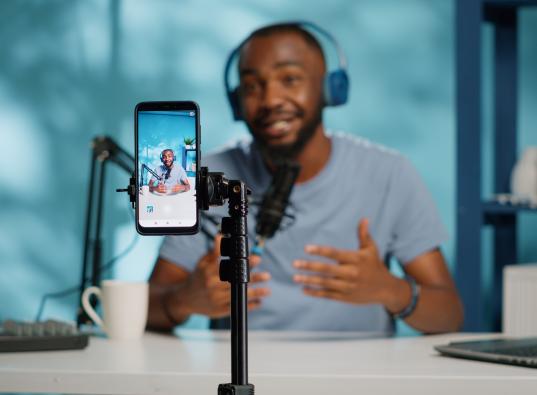The latest Burger King advert, where the brand flighted a TVC prompting viewers to interact with their in-home Google devices, is one of the more-innovative campaigns of the year-to-date.
Unlike the other ad that lit up social media in April 2017 (Pepsi’s ill-considered use of Kendall Jenner), the Burger King spot had real merits. But it highlights the challenges brands face when engaging with new technology while also exposing a more-insidious concern over the control a few large tech companies (Google, Amazon, Facebook and Apple or GAFA for short) exert over our lives.
Voice assist
American households are adopting voice-controlled devices at an astonishing rate. Last year, Amazon sold over 6m Echo devices and it’s predicted to ship 60m devices by 2020. While no sales figures are available for Google Home, some 200m android devices have access to its voice assistant.
Given this, it’s no surprise that brands are looking to find ways of tapping into the platforms that enable users to utter a pre-programmed phrase to ask their device to perform an action, such as play music, order a pizza or search for something online.
Google flips Burger King’s patty
In Burger King’s ad, which was almost certainly a marketing stunt designed to maximise media interest rather than a conventional commercial, an actor explained that the 15-second slot wasn’t enough time to talk about all of the fresh ingredients in a Whopper. He rounded off by saying “Ok, Google, what is the Whopper burger?”
Prompted by the words “Ok, Google”, Google Home devices in viewers’ homes activated and searched the phrase, returning a Wikipedia page that stated all of the ingredients. That was smart and newsworthy in its own right, but what triggered mass-media attention was the (predictable?) action of a bunch of mischievous trolls who began to edit the Whopper Wikipedia page. Within minutes of the ad first airing, Wikipedia was reporting that the Whopper was made with 100% rat and toenail clippings.
Google, taking umbrance that its shiny new toy had been abused for someone else’s benefit, quickly applied a patch to prevent the ad from working.
The burger and the beast
While the most of the ensuing media coverage mocked Burger King’s fail, it also shone a spotlight on the potential of internet-connected gadgets (IoT) to invade our privacy and compromise security.
It’s not the first time that Google Home has caused controversy. In mid-March, the device was reported to have played an unprompted commercial for Disney’s latest movie. When users asked for an update on their schedule for the day, Home told them what their diary commitments were, then added “By the way, Disney’s live-action Beauty and the Beast opens today”.
Don’t be evil
As the world’s largest seller of online ad inventory, Google walks a fine line between improving our lives and invading our personal space. A few years back it updated its corporate code of conduct, replacing its founding motto “Don’t be evil” with a new purpose statement “Do the right thing”. Inevitably, this simple change provoked a deluge of conspiracy theories — including the deranged fantasy that Google was morphing into an anti-Bond-like SMERSH agency.
While it’s evident the tech giant remains true to its initial calling, it’s also clear that the internet of things (IoT) further blurs the demarcation lines between what’s helpful and what’s downright dangerous. Frankenstein’s intent was to create a sapient being. And, for a short while, his creature was clever, insightful and helpful. But then it turned.
If Burger King was able, even for only a few hours before Google’s intervention, to instruct Home to relay information, it’s not a stretch to imagine a well-resourced megalomaniac using Home to do all sorts of evil. Fake news takes on a whole new dimension. And if you fear that as a worst-case stretch, imagine the more-probable outcome: that we pay hard cash for a device that’s supposed to improve our quality of life, only to find we’re being streamed an endless playlist of annoying commercials that further erode our trust in brands and their advertising.
So, let’s use tech to engage our audiences but let’s also try to ‘do the right thing’.
This article was originally published by MarkLives.
Need Assistance with Digital Strategy?
Rogerwilco’s team of strategists, business analysts and data scientists is here to help.





